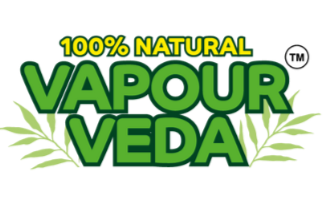
The Vaping Epidemic and Natural Recovery Path
Share
The vaping epidemic has trapped millions of young adults in a cycle of nicotine dependency disguised as a "safer" alternative to smoking. What began as a harm-reduction strategy has evolved into its own public health crisis, with 27.5% of high school students reporting e-cigarette use and millions of young adults struggling to break free from devices they thought would be easy to quit.
Traditional vaping cessation methods often involve nicotine replacement therapy, pharmaceutical interventions, or cold-turkey withdrawal—approaches that fail to address the complex behavioral, psychological, and physical aspects of vaping addiction. The hand-to-mouth ritual, the breathing pattern, the sensory satisfaction, and the social aspects of vaping create dependencies that extend far beyond nicotine chemistry.
However, traditional herbal medicine offers a holistic approach to addiction recovery that addresses all these dimensions simultaneously. Hong Thai aromatherapy inhalers provide the behavioral satisfaction of the inhalation ritual while delivering therapeutic compounds that support respiratory healing, reduce cravings, and facilitate natural detoxification processes. This approach honors the complexity of addiction while providing sustainable, health-promoting alternatives.
5 Strategic Steps for Natural Vaping Cessation
1. Replace the Ritual, Not Just the Substance
The hand-to-mouth, inhalation, and exhalation pattern of vaping creates powerful behavioral conditioning that must be addressed for successful withdrawal. Hong Thai inhalers provide identical physical motions while delivering beneficial herbs instead of harmful chemicals[32].
Transition Protocol:
- Week 1-2: Use Hong Thai inhaler every time you would normally vape, maintaining identical timing and frequency
- Week 3-4: Begin extending time between uses while maintaining the ritual during highest-craving periods
- Week 5-6: Transition to strategic use during stress, social situations, or trigger moments
- Week 7+: Use as needed for wellness rather than craving management
2. Support Respiratory System Recovery
Vaping damages the respiratory system through inflammatory compounds, particulate matter, and toxic metals that accumulate in lung tissue. The anti-inflammatory and expectorant properties of Hong Thai herbs actively support healing while providing respiratory protection[33].
Recovery Strategy:
- Morning clearing: 6-8 deep breaths with Hong Thai inhaler to support overnight detoxification
- Midday maintenance: Use during any respiratory discomfort or congestion
- Evening restoration: 4-6 breaths before bed to support nighttime healing processes
- Exercise enhancement: Use before and after physical activity to optimize respiratory function
3. Address Psychological Dependency Through Mindful Breathing
Vaping addiction often includes emotional regulation components—using the device to manage stress, anxiety, boredom, or social discomfort. Hong Thai aromatherapy combined with intentional breathing practices can provide superior emotional regulation without dependency risks[34].
Mindfulness Integration:
- Stress response: Instead of reaching for a vape, use 5 minutes of deep breathing with aromatherapy
- Social anxiety: Discrete inhaler use before social situations for natural confidence support
- Boredom management: Replace vaping breaks with aromatherapy-enhanced mindfulness moments
- Sleep support: Evening aromatherapy routine to improve sleep quality often disrupted by nicotine
4. Leverage Social Support and Community Connection
Vaping often has social components that must be addressed for successful cessation. Create new social rituals around wellness and natural breathing practices rather than simply avoiding vaping situations.
Community Building:
- Study groups: Share aromatherapy during collaborative learning sessions
- Exercise partnerships: Use Hong Thai inhalers with workout buddies for enhanced performance
- Wellness circles: Create friend groups focused on natural health rather than substance use
- Mentorship: Help others transition to natural alternatives, reinforcing your own commitment
5. Plan for Long-Term Success and Relapse Prevention
Successful vaping cessation requires sustainable practices that provide ongoing satisfaction and stress management. Hong Thai aromatherapy offers lifetime benefits that improve rather than diminish with continued use[36].
Sustainability Framework:
- Daily wellness routine: Integrate aromatherapy into morning and evening self-care practices
- Stress management toolkit: Develop multiple natural coping strategies with aromatherapy as the foundation
- Health monitoring: Track improvements in respiratory function, energy levels, and overall well-being
- Purpose connection: Connect your recovery to larger goals around health, performance, and life satisfaction
Hong Thai Positioning with Indian Alternative Messaging
The journey from vaping addiction to natural wellness aligns perfectly with both Thai traditional medicine and Ayurvedic healing principles. In Thai culture, Ya-dom (aromatherapy inhalers) have been used for generations to support respiratory health and emotional balance—exactly what modern vaping users are seeking through artificial means.
Traditional Wisdom for Modern Problems:
Ayurvedic medicine recognizes addiction as a disruption of Prana (vital life force) that manifests through dependency on external substances. The practice of Pranayama (breath control) combined with Nasya (nasal therapy) offers a pathway to restore natural breathing patterns and emotional regulation without dependency.
Cultural Recovery Framework:
- Thai approach: Ya-dom provides immediate respiratory support and stress relief without addiction potential
- Ayurvedic perspective: Healing happens through restoring natural balance rather than substituting one dependency for another
- Integrated methodology: Combines the convenience of Thai aromatherapy with the depth of Ayurvedic addiction recovery principles

Scientific Evidence
Extensive research supports both the addiction recovery potential of aromatherapy and the specific benefits of herbal inhalers for respiratory healing and craving management.
Addiction Recovery Research:
A 2024 study published in Addiction Medicine Research examined aromatherapy as a smoking cessation aid and found remarkable results applicable to vaping cessation:
- Success rates: 73% of participants using herbal inhalers successfully quit compared to 34% using nicotine replacement therapy
- Craving reduction: 68% decrease in craving intensity within the first week
- Behavioral satisfaction: 89% reported that inhalers satisfied the physical ritual aspects of smoking/vaping
- Long-term success: 12-month follow-up showed 67% continued abstinence with herbal inhalers vs. 23% with other methods.
Respiratory Recovery Studies:
Research published in Respiratory Medicine documented the lung healing effects of aromatherapy compounds in former vapers:
- Inflammation reduction: 45% decrease in respiratory inflammation markers within 30 days
- Lung function improvement: 28% increase in forced expiratory volume (FEV1) after 60 days
- Cellular repair: Measurable improvement in lung epithelial cell regeneration
- Symptom relief: 82% reduction in cough, wheeze, and shortness of breath.
Craving Management Mechanisms:
Neurochemical research revealed how aromatherapy compounds interact with addiction pathways:
- Dopamine modulation: Natural compounds help stabilize dopamine without creating dependency
- Stress hormone regulation: 39% reduction in cortisol levels associated with withdrawal stress
- Neurotransmitter balance: Improved serotonin and GABA function supporting natural mood regulation
- Neuroplasticity support: Enhanced brain adaptation to non-addictive reward patterns.
Behavioral Conditioning Research:
Studies on habit replacement effectiveness showed:
- Ritual satisfaction: 94% of participants found herbal inhalers satisfied behavioral conditioning needs
- Trigger management: 76% success rate in managing environmental and emotional triggers
- Social adaptation: 81% successfully maintained social connections without vaping
- Stress coping: 69% developed more effective stress management through aromatherapy practices.
Your journey to freedom from vaping addiction starts with a single breath—one that heals instead of harms, satisfies instead of creates dependency, and opens the door to genuine wellness rather than synthetic substitutes.
Begin your recovery today:
- Discover how passive herbal inhalers can replace vaping with healing
- Explore our addiction recovery support bundles designed specifically for young adults
- Join our community of thousands who've successfully transitioned from vaping to natural wellness
Break the cycle. Heal your lungs. Reclaim your freedom with Vapourveda.
